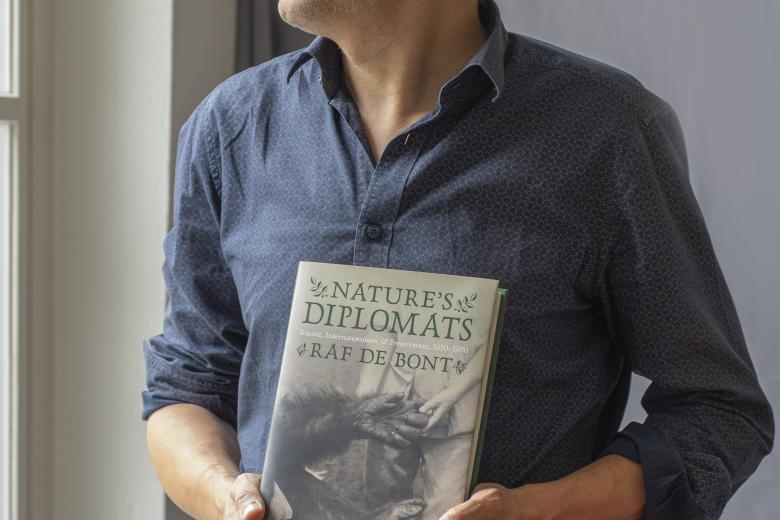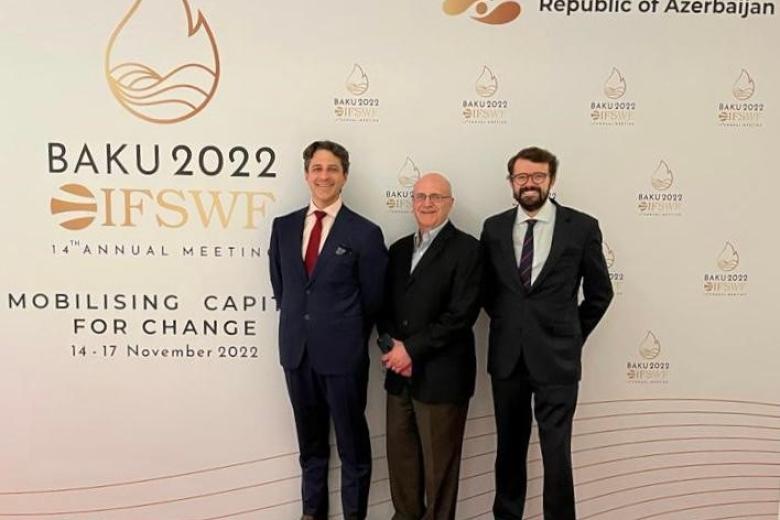“Politicians are making fewer false promises, but it is still politics after all”
A stop to migration? Setting aside the nitrogen regulations? Radically countering internationalisation in higher education? Politicians regularly make great pronouncements. To what extent are these promises realistic? Dr Karin van Leeuwen, lecturer of European Political History at the Faculty of Arts and Social Sciences, is adamant: “European laws and agreements would not permit all those changes.” At the same time, Van Leeuwen has noticed an important development: politicians appear to be more reliable in their statements. How so? And with all the European legislation, could a new Dutch Cabinet really bring about completely new policy?
Limited by European law
Van Leeuwen, historian through and through, has been researching the history of exchange between politics and law ever since her dissertation. She explains: “From the 1950s onwards, EU law has emerged as a new sort of law. Since then, more and more decisions have been taken by the judge instead of by the Dutch House of Representatives or the government. We call this the ‘legalisation of politics’: the judge must test decisions and regulations against constitutional law and European agreements.”
In the Netherlands, the Cabinet has had to observe both Dutch constitutional law and European legislation since this shift took place. This means that not all the plans of political parties can simply be carried out. Van Leeuwen elaborates: “Some parties call, for instance, for a stop to migration or for a quota. The Nieuw Sociaal Contract party (that of Pieter Omtzigt) is one of the parties who has included this in their election programme. But these sorts of measures do not align with current European agreements. Of course, EU member states do not always stick to the agreements. It is still politics, after all. Both in the Netherlands and in other European countries, politicians try to push the boundaries. But if a country would implement such a thing, sanctions could be imposed after a while.”
What could change?
After four terms of Mark Rutte, the political landscape could look completely different after the elections. For instance, Pieter Omtzigt’s party has emerged, the BoerBurgerBeweging farmer’s party suddenly took the lead in provincial council elections this year and many parties have since elected a new leader. To what extent could a totally different Cabinet also mean a completely new direction for the Netherlands? Van Leeuwen emphasises that policy cannot just be drastically changed, because of the limitations set by European legislation.
She explains: “Much has already been set in stone. And the things that have not been set in stone would sometimes be less suited to a one-sided decision. This is evident, for instance, in the discussions on limiting flights from Schiphol. If the Netherlands reduced its number of flights, airlines would divert to London, Paris and other cities. This would have consequences for business in the Netherlands; other countries would actually benefit from this. So, it isn’t always an advantage to be the only country acting differently.”
A lot has already been set in stone when it comes to other topics. Van Leeuwen takes migration as an example. “For this, there are strict legal frameworks that we cannot diverge from. You could neglect them for a while as a country, but over the course of time, measures would then follow. You can see this happening in Hungary, for example. Brussels does not just immediately send in the army. But also domestically, it will lead to a lot of discussion.”
Politicians are becoming more honest
At the same time, Van Leeuwen has also noticed a positive development when looking at election programmes. “It seems that over the last couple of years, politicians have become more honest”, she notes. “Instead of promising things that can’t happen because of legislation, they make promises to start European discussions about certain laws or regulations, to see if things can be handled differently. So, they emphasise negotiating on European regulations, instead of making infeasible promises.”
According to Van Leeuwen, this is a logical development. “It is important to tackle topics like migration or climate policy jointly. For instance, you wouldn’t want to end up doing things in the Netherlands that would have painful consequences for us, all the while benefitting other countries that do not apply such measures. In that respect, European policy works better.”
Some parties want to put a stop to migration, or enforce a quota. But within European law, this would not be permitted at all.
Karin van LeeuwenImpact on education
A new Cabinet also means new decisions on education. What impact can we expect in this area? Van Leeuwen: “Within FASoS, the impact of Cabinet decisions is the talk of the town, especially the accessibility of higher education to non-Dutch students. Legislation on education for EU citizens is clear: the borders are open for students from other EU countries. But the Cabinet was still able to find a loophole to bypass this. By changing the language of instruction to Dutch, they can still scare off non-EU students.”
Van Leeuwen would rather see the Cabinet initiate European discussions on the matter. “I do understand the concern. How sustainable is it if Dutch taxpayers finance the education of a growing number of students from abroad? It is also perhaps undesirable for other EU member states to have entire generations leave their countries. At the same time, it would be better to create EU policy on this. We didn’t choose to open up borders within the EU for nothing.”
Election results still wide open
What the Cabinet will soon look like? Van Leeuwen doesn’t dare to make any predictions about it. “It has never been as wide open as it is now. It is still unclear which way a variety of players will go, such as Omtzigt’s party, and what choices they will make. Previously, we often had a rough idea of which parties would gain favour and that negotiations between some parties would be difficult. Now, it is difficult to say anything about that.”
The outcomes of the elections have never been as wide open as they are now.
Karin van LeeuwenText: Romy Veul
Also read
-
How wild are “wild animals” still in the time of zoos, nature reserves and breeding programmes?
Is an elephant in Artis Zoo just as “wild” as an elephant on the African savannah? What place do animals have in a world that is increasingly shaped by humans? Why does the presence of a few wolves in the Netherlands trigger so many negative emotions, while Dutch people donate money en masse to...

-
Who’s afraid of foreign funds?
State-owned sovereign wealth funds (SWFs), like that of FIFA World Cup host nation Qatar, are major shareholders in Western industrial and cultural assets. Is that a cause for concern? FASoS’ Adam Dixon has some answers.

-
A transnational eye-opener on Hungary
A Global History of Hungary, 1869-2022 is a comprehensive book that presents the country as an open society interacting with other nations, mainly within Europe.
